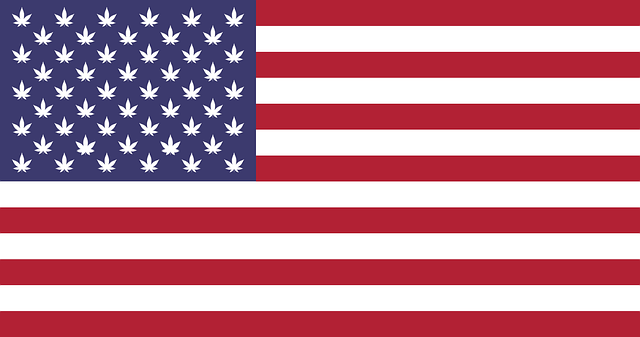California has established itself as a leader in the cannabis industry, particularly with the emergence of THCA, a non-psychoactive compound found in cannabis, as a wellness compound within its regulated market. Following the legalization of recreational cannabis in 2016, THCA-rich flowers have become available at licensed dispensaries statewide, offering potential health benefits without the psychoactive effects of THC. California's rigorous testing ensures these products are safe and effective for consumers, making them a popular choice for those looking to relieve various conditions. As research evolves, THCA is gaining recognition for its therapeutic properties beyond being just a precursor to THC. The state's Cannabis Regulations allow adults to cultivate cannabis for personal use with restrictions, ensuring compliance with laws designed to promote public safety and health. THCA flowers are a legal part of California's diverse cannabis offerings, provided they are purchased from licensed retailers, enabling consumers to activate the compound into THC if desired. As of early 2023, THCA represents a specialized segment within the state's market, offering distinct effects when properly heated. Consumers and cultivators must stay informed about California's dynamic cannabis laws to avoid legal repercussions. THCA remains a significant wellness compound that is legally available in California under its comprehensive regulatory framework.
Explore the emerging world of THCA flower benefits and their legal standing in California. This article delves into how these cannabinoid-rich flowers are shaping wellness practices across the Golden State. Understand the intricacies of cultivating and consuming THCA flowers within California’s regulatory framework, ensuring compliance while highlighting their therapeutic potential. Join us as we navigate the evolving legal landscape for THCA in California, where responsible consumption meets health-forward innovation.
- THCA Flower Benefits and Usage in California's Legal Landscape
- Cultivating and Consuming THCA Flowers within California's Regulatory Framework
THCA Flower Benefits and Usage in California's Legal Landscape

Delta-9-tetrahydrocannabinol alcohol (THCA) is a naturally occurring compound found in cannabis plants, which, when heated, converts into the more commonly known THC. As of California’s legal landscape, THCA-rich flowers are available for purchase at licensed dispensaries, offering a range of potential benefits. In California, where the recreational use of cannabis and its derivatives has been legal since 2016, THCA is gaining attention for its therapeutic properties. Unlike THC, THCA is non-psychoactive, meaning it does not induce the ‘high’ typically associated with cannabis consumption. This allows users to potentially reap the benefits of the plant without the mind-altering effects, making it a versatile option for those seeking relief from various conditions.
Research suggests that THCA may offer anti-inflammatory and neuroprotective properties, which could be beneficial for individuals dealing with pain, inflammation, or neurological disorders. California’s regulated cannabis market ensures that products like THCA flowers are tested for purity and potency, providing consumers with safe and reliable options for wellness. As the understanding of cannabinoids expands, THCA is being recognized not just as a precursor to THC but as a valuable compound in its own right, with applications in various wellness routines across California’s diverse communities. The legal status of THCA flowers in California reflects the state’s commitment to advancing cannabis science and ensuring access to beneficial cannabinoids for residents and visitors alike.
Cultivating and Consuming THCA Flowers within California's Regulatory Framework

In California, the cultivation and consumption of THCA flowers are regulated under the state’s Cannabis Regulations. THCA, or tetrahydrocannabinolic acid, is a non-psychoactive cannabinoid found in raw cannabis plants, which can transform into the psychoactive THC when heated. Under California’s regulatory framework, adults 21 and over are legally permitted to cultivate cannabis for personal use, provided they adhere to the state’s guidelines. These include limitations on the number of plants per individual or per household, requiring plants to be kept securely indoors or in an enclosed space that is not publicly visible. The THCA legal status in California aligns with broader cannabis regulations, which prioritize public safety and health. Consumers interested in the potential wellness benefits of THCA flowers must source them from licensed retailers if they have been processed to activate the compound into THC. This ensures that the product is tested for purity and potency as per state regulations. It’s crucial for both cultivators and consumers to stay informed about the evolving legal landscape and to comply with all local, state, and federal laws regarding cannabis cultivation and use. As of the knowledge cutoff date in early 2023, THCA flowers are a niche but legal component of California’s cannabis market, offering a unique set of effects distinct from their psychoactive counterparts when properly activated through decarboxylation.
California has paved a new frontier in the realm of cannabis consumption with the emergence of THCA flowers as a legal and beneficial choice for those seeking alternative wellness solutions. This article has delved into the multifaceted aspects of using THCA flowers within the Golden State’s regulatory framework, highlighting their unique benefits and outlining the cultivation guidelines to ensure compliance with state laws. As THCA legal options in California continue to expand, it is clear that these products hold potential for a variety of applications, from therapeutic use to recreational enjoyment. Prospective users are encouraged to stay informed on the evolving legal landscape surrounding cannabis to fully reap the advantages that THCA flowers offer responsibly and legally.
